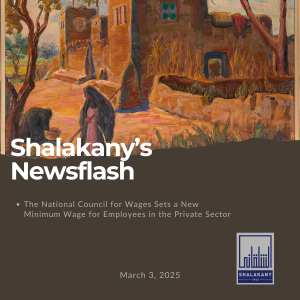The Egyptian Labour Law (issued by virtue of law No. 12 of 2003) established, by virtue of its Article 133, the Fund for the Financing of Training and Rehabilitation (the ‘Fund’), provided the Fund with a public juristic persona, and subjected the Fund to the supervision of the Minister of Manpower.
In its Article 134, the Labour Law imposes an obligation on all establishments and entities that are governed thereby and employ more than 10 employees to pay 1% of its annual net profit to the Fund. Various decrees were issued to govern and regulate the manner with which companies are to perform their obligation of contributing to the Fund’s resources on a yearly basis.
The constitutionality of Article 134 of the Labour Law was challenged, and the challenge was brought before the Supreme Constitutional Court which finally issued its ruling in November 2021 upholding and confirming the constitutionality of Article 134. This entails that the obligation imposed on companies by virtue of Article 134 remains in place and that its application throughout the years since the issuance of the Labour Law cannot be deemed to have been suspended at any point in time.
On 18 May 2022, the legal representative of the Fund wrote to the competent personnel at the Ministry of Manpower confirming that the Fund intends to invoke the practically-suspended provision of Article 134 and to collect outstanding payments since the date of entry into force of the Labour Law (i.e., going back to 2003). If the Fund proceeds on this basis, companies can expect to start receiving demands for payment on account of previous years. Further, companies can expect to start receiving written requests, as well as physical visits, from the Fund and/or the Labour Offices for the disclosure and provision of documents such as the budgets and financial statements for previous years.
Shalakany have received, and continue to receive, requests for advice from its clients in relation to their legal position vis-à-vis the Fund in relation to past and future obligation to make payments. Naturally, there are important procedural and substantive issues to take into consideration when devising and adopting a strategy for dealing with potential exposure.
For more information on this subject, please get in touch with Mariam Fahmy (Partner, Corporate) and with Muhammad Ussama (Partner, Disputes) at mariam.fahmy@shalakany.com, and muhammad.ussama@shalakany.com.



